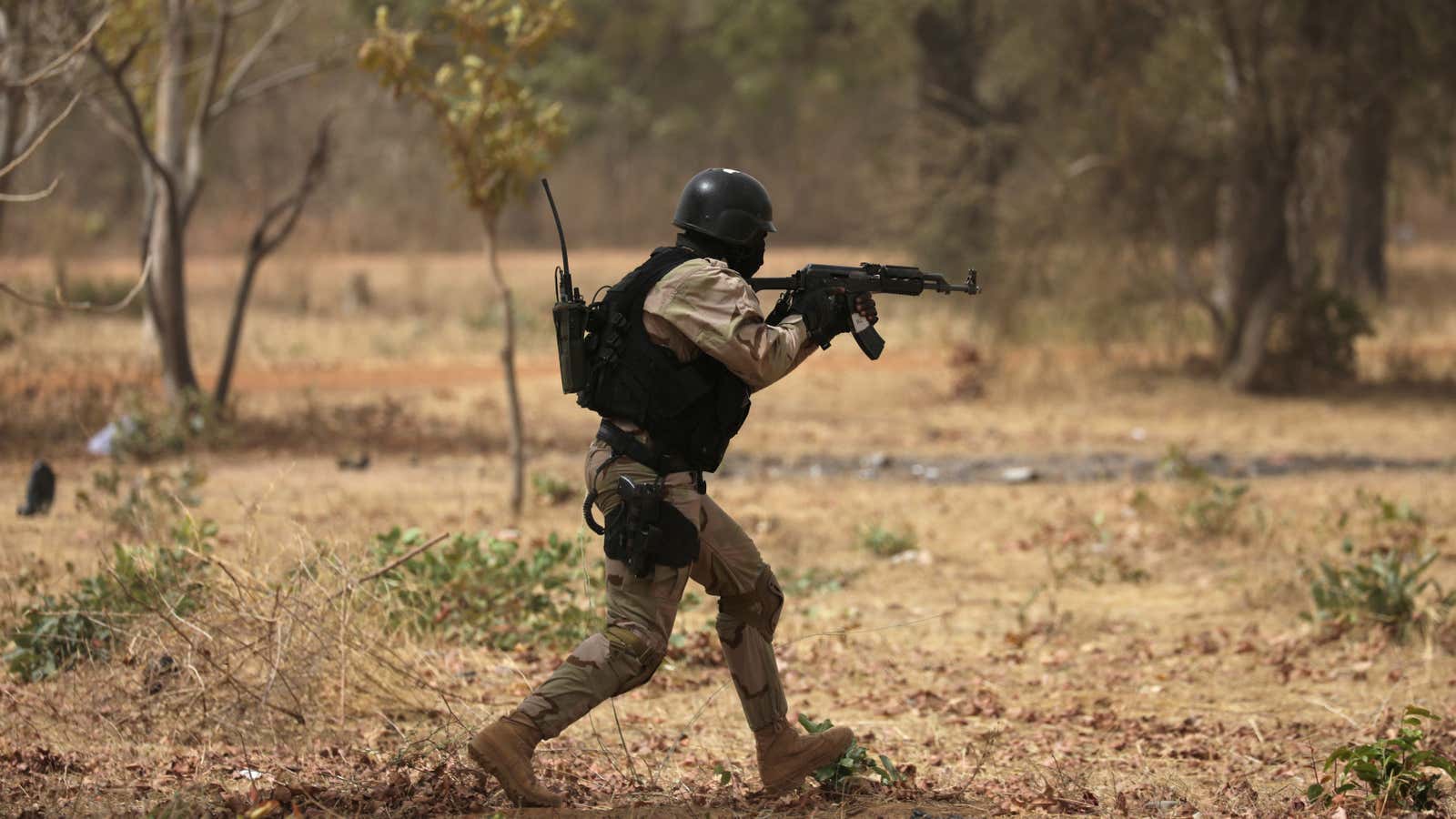Burkina Faso’s national assembly unanimously passed legislation earlier this week that allows the state to recruit volunteers to aid in the fight against jihadist and armed groups that have waged increasingly fatal attacks in recent months.
While volunteer groups have played a role in the fight against terrorist groups such as Boko Haram in northeastern Nigeria, this could be the first time a state in the subregion has given legal backing to create a volunteer defense force to help tackle an insurgency.
Burkina Faso’s defense minister Chérif Sy likened the new “Volunteers for the Defense of the Homeland” movement, to the Algerian fight against colonialism and Islamists and the French resistance movement in World War II. He said recruits would not be used as “cannon fodder,” in a hearing with the Commission for Defense and Security at the national assembly a week before the law was passed.
“There are a lot of grey zones in the law,” said Chrysogone Zougmoré, the director of the Burkinabé Movement for Human Rights. “The volunteers are supposedly going to be recruited in zones that are at risk, but the whole country is at risk. And how many are they going to recruit?”
The vaguely-worded law outlines plans for paid volunteers to undergo 14 days of training, in military tactics, creating ambushes, establishing checkpoints, handling arms civic and moral education and respect for human rights.
Sy acknowledged Burkina Faso’s security forces are struggling to deal with the threat and said the government wanted to avoid the emergence of “militias.” However, how these groups will be armed and supervised remains unclear, as does how they will be paid.
“The military do not have enough arms for themselves, where are they going to find the arms for the volunteers?” Zougmoré, said, adding that two weeks was not enough time to properly train recruits in how to responsibly handle arms.
The law states recruits must be over the age of 18 and that local community leaders would play a role in screening and choosing recruits, but human rights activists have raised concern about screening and supervision and are concerned that volunteer groups could take on a more ethnic dimension.
The passage of the law came on the same day militants killed 36 civilians, in Sanmatenga province in the Central-North region of Burkina Faso, according to government reports. Burkina Faso president Roch Marc Christian Kaboré announced the state would be calling for recruits, after the killing of 37 mining workers in November last year.
Concerns
“I would have major concerns with people who have very limited training in the use of force and the appropriate use of force fighting against an insurgent enemy that is very difficult to define and that is tricky, even for the professionalized forces to deal with,” said Philippe M. Frowd, an assistant professor of political science at the University of Ottawa, who recently conducted a study on Burkina Faso community self-defense groups known as Kogleweogo, which the government has suggested might be incorporated into the volunteer defense force.
Thousands of Kogleweogo groups exist throughout the country, primarily in communities of the Mossi ethnic group and International Crisis Group have flagged the Kogleweogo as a potential threat to state stability in the future. Some of the groups have been implicated in human rights abuses, and others have become targets of jihadist attacks, according to a recent Human Rights Watch report that documented jihadist violence against civilians in recent months.
“The government has failed to ensure discipline within and justice for their own security force violations. So it’s really questionable whether they have the political will to do that for any eventual acts of indiscipline by these self-defense groups,” said Corinne Dufka a researcher for Human Rights Watch.
The passage of the law comes after the Pentagon’s announcement of plans to cut down US troops in the region, and French-led military operations that are expected to unfold in the coming weeks (French).
After the final vote, Alassane Bala Sakandé, president of the national assembly said: “This vote expresses the support of the assembly in the fight against terrorism. It’s difficult, it’s hard …. but victory is inevitable.”
Sign up to the Quartz Africa Weekly Brief here for news and analysis on African business, tech and innovation in your inbox
